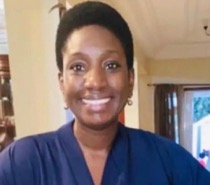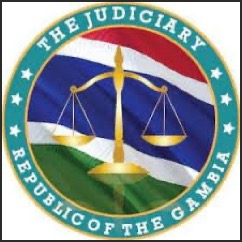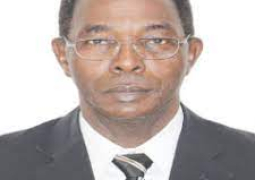
In a historic event held on the 17th day of March, 2024, at the Sir Dawda Jawara Conference Centre, the Judiciary of The Gambia hosted its first International Alternative Dispute Resolution (ADR) Conference. I was one of 19 Court Certified Mediators including, lawyers and judicial officers appointed to assist parties negotiate and settle their court disputes after completing several months of rigorous training.

Shortly after the conference, the Judiciary celebrated ADR week from the 20th to the 25th May, 2024. During ADR week, we started mediating cases as the courts referred numerous civil cases for mediation at the newly established ADR Secretariat in Banjul adjacent to the Superior Courts’ Complex on Independence Drive, Banjul, The Gambia.
Why the need for Mediation?
Limited access to justice continues to be a chronic systemic problem in The Gambia and a major impediment in the proper administration of justice. The Judiciary regrettably has not lived up to expectation as the last bastion of hope and justice for The Gambian people.
The courts have breached their sacrosanct constitutional duty to uphold and enforce the rights of every person living in The Gambia to fair trial, equal protection under the law and have failed to effectively carry out their core function of expeditious determination of cases.
This failure is due to the fact that, the high volume of cases filed in the courts does not match the resources and capacity allocated by government to handle them leading to serious congestions, frequent adjournments and long unreasonable delays in trials.
At the end of 2023, less than half of 12,000 pending court cases reached a final determination. As the former President of The Gambia Bar Association Salieu Taal aptly put it in his 2023official Legal Year opening address “the road to justice is a long one for the average Gambian”.
What we currently have is a broken judicial system in serious need of repair. As noted by the current Chief Justice in his 2024 Legal Year opening statement, the solution lies in exploring out of court settlement options.
Although ADR is not a new concept in The Gambia, it has been inactive for many years. The recent introduction of court connected ADR, a mandatory process where parties are required to participate in mediation before or during litigation will revitalize ADR in The Gambia.
Key advantages of mediation
- Mediation allows parties to negotiate and resolve their cases out of court in a simple, informal, fast and affordable manner reducing case backlog and improving access to justice.
- By providing a platform for parties to participate in decisions affecting their resolution in a way that truly meets their needs and interests, mediation promotes the parties’ right to self determination and empowers them to take ownership of their disputes.
- Mediation is a transformational and life saving process which preserves, builds and repairs broken relationships. It enables parties to come together and have open conversations about their dispute in an environment that encourages the free expression of their thoughts, feelings and emotions in a private and confidential setting.
- Court-connected ADR settlements are entered as judgments of the court, binding on both parties and enforceable by the court if breached, providing them with the benefits of a court settlement without the disadvantages of a court trial. It is the best of both worlds!
- Mediation provides a platform for judges, lawyers and the public to work together to address the issue of limited access to justice and provide lasting solutions.
- By resolving cases outside the court system, mediation helps reduce the burden on the courts, allowing them to focus on those cases that require court intervention.
As an experienced litigator who has faced serious challenges navigating the court system and managing my clients’ dissatisfaction with the status quo, I wholeheartedly welcome mediation as a means to better resolving court cases. The benefits mediation offers are endless and I look forward to exploring and maximising its full potential.
As ADR week fades away, it is up to all the stakeholders, particularly the lawyers and judges to encourage parties to pursue mediation, empower them to own their dispute resolution process and claim their right to access justice.
It is a new beginning for justice in The Gambia. Let’s discuss ADR systems and what works best for us. I look forward to your feed back!
BIOGRAPHY
Sagar C. T. Twum popularly known as Counsel Sagar is the Founder and Head of Harriet Martha N'dow Law Chambers established in 2020.
Counsel Sagar is a respected prominent female lawyer, former Public Prosecutor and Magistrate, skilled litigator, recognised human rights and criminal defence lawyerwith almost 20 years practice experience in The Gambia in all areas of the justice system.
She was Head of Litigation at Fajara Chambers for about 10 years before her role as Counsel at the Truth, Reconciliation and Reparations Commission (TRRC).
She has appeared in many high-profile, public interest and strategic cases throughout her years of practice.
Passionate about access to justice, she is also a qualified Alternative Dispute Resolution Practitioner and Court Certified Mediator.
She is currently the Vice Chair-person of the newly established State-Owned Enterprises (SOE) Commission.
She has served on the boards of several human rights organisations as legal adviser and is currently the legal adviser to the largest chain of private schools in The Gambia



